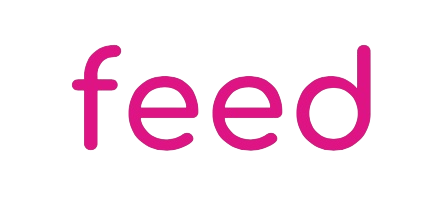
Feed Manifesto
Our manifesto for supporting women and families
Feed’s six simple requests for our Government to make sure women can feed their families without worry or stress.
The Feed Manifesto
Abolish the two child benefit cap
The two-child limit restricts support provided through Child Tax Credit and Universal Credit to only the first two children in a household. This policy applies to all children born after April 2017, meaning its impact grows each year it remains in place. Last year, it was estimated that the two-child limit affected 1.5 million children in the UK, which equates to one in every ten children. This policy cost larger families up to £3,235 per year, and 60% of the affected families had at least one working parent. The rising cost of living has further exacerbated the challenges these families face, including the soaring cost of infant formula. This policy severs the long-standing connection between welfare and need, punishing women and their families for unexpected pregnancies and driving children in already financially strained households into deeper poverty. We believe that such a policy has no place in a wealthy nation like the UK today.
Review restrictions on the sale of infant formula that punish families.
Authorise retailers as a matter of urgency to accept loyalty points, grocery vouchers, and store gift cards—often provided by food banks and local authorities—as payment for infant formula.
Parents of young babies, struggling amid the cost of living crisis, are often forced into unsafe feeding practices, formula foraging, or even theft to access this essential food. Supermarkets currently believe purchasing formula with cash equivalents is prohibited by law. However, legal experts have questioned this interpretation, and a new Government should review this legislation immediately and provide clarity to retailers and families. Restrictions on the use of cash equivalents does not protect breastfeeding, rather it punishes parents and stigmatises their choices.
Launch a Public Health messaging campaign to stress the equivalence of all first infant formulas
Clear public health messaging is needed to emphasize that all brands of first infant formula have no nutritional differences and must adhere to the same regulations. Currently, there is a 125% price gap between the cheapest and most expensive formulas, leaving parents confused about the reasons for this disparity. This information can be effectively communicated through various channels, including antenatally, via the digital Red Book, and point-of-sale displays.
Increase the value of Healthy Start and review eligibility criteria.
Healthy Start, which provides £8.50 per week for the purchase of fruit, vegetables, pulses first infant formula and milk to families with a child under one has seen its real value decline as it has not kept up with inflation (for instance it no longer meets the costs on tub of formula), while eligibility has not been been reviewed since 2016 (families qualify if their earned incomes while claiming universal credit is less than £408 per month). The scheme should follow Scotland’s Best Start Foods scheme and increase the value of payments in line with inflation, as well as reviewing the income thresholds that exclude many families facing food insecurity. Our recent Out of Milk inquiry illustrates the degree to which food insecure mothers are struggling, in some cases compelled to continue breastfeeding because they cannot afford formula while in others unable to continue breastfeeding because of insufficient milk they relate to low food intake and related stress.
Ensure infant feeding policies support women’s choices
Infant feeding is a matter both of public health and women’s reproductive choice. These are not mutually exclusive but closely intertwined. We need an infant feeding policy which reflects the realities of women’s lives and the needs of families, recognising that the vast majority of women will both breast and formula feed during the first six months of their baby’s life. Women need access to evidence-based information that supports the complexities of their infant feeding journeys and treats them as capable of making the choices that are right for them and their families. This should include not just investment in breastfeeding support services and women’s increasing preference for “flexible feeding”, using both breast and formula milk so they can share care, but also funding for research into the common issues women face while feeding which are currently woefully under-investigated.
Develop clear pathways for the supply of infant formula
While no family should have to rely on a food bank, emergency food provision from one major food bank has increased by nearly 100% in the last 5 years. Guidance around the supply of infant formula from food banks is confused and contradictory. While a “cash first” approach may suit some families to be able to purchase their own supplies in an emergency, there is no reason why first formulas of any brand (all are nutritionally equivalent) cannot be supplied directly from food banks to those in need and this should be made clear. A patchwork of arrangements also exist for the supply of formula milk to new mothers living with HIV to reduce the risk of transmission through breastfeeding, but we need a centrally commissioned service that ensure their needs and those of their babies are met.










